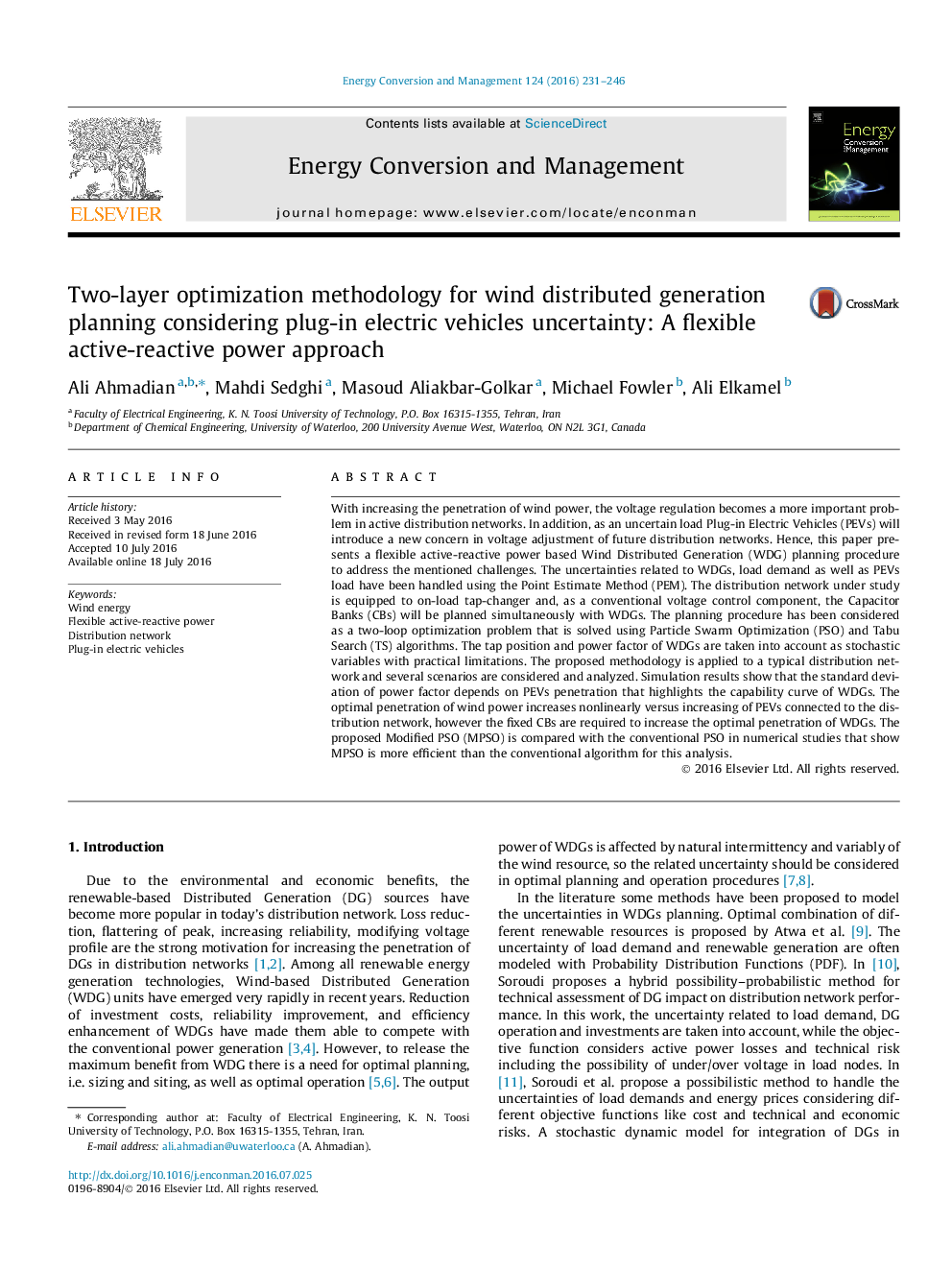| Article ID | Journal | Published Year | Pages | File Type |
|---|---|---|---|---|
| 764975 | Energy Conversion and Management | 2016 | 16 Pages |
•Flexible active-reactive power control of WDGs is proposed for WDGs planning.•The uncertainty of PEVs effect is considered in WDGs planning.•The wind data is classified in four separate seasons to reach more accurate results.•The PSO algorithm is modified to overcome the complexity of problem.
With increasing the penetration of wind power, the voltage regulation becomes a more important problem in active distribution networks. In addition, as an uncertain load Plug-in Electric Vehicles (PEVs) will introduce a new concern in voltage adjustment of future distribution networks. Hence, this paper presents a flexible active-reactive power based Wind Distributed Generation (WDG) planning procedure to address the mentioned challenges. The uncertainties related to WDGs, load demand as well as PEVs load have been handled using the Point Estimate Method (PEM). The distribution network under study is equipped to on-load tap-changer and, as a conventional voltage control component, the Capacitor Banks (CBs) will be planned simultaneously with WDGs. The planning procedure has been considered as a two-loop optimization problem that is solved using Particle Swarm Optimization (PSO) and Tabu Search (TS) algorithms. The tap position and power factor of WDGs are taken into account as stochastic variables with practical limitations. The proposed methodology is applied to a typical distribution network and several scenarios are considered and analyzed. Simulation results show that the standard deviation of power factor depends on PEVs penetration that highlights the capability curve of WDGs. The optimal penetration of wind power increases nonlinearly versus increasing of PEVs connected to the distribution network, however the fixed CBs are required to increase the optimal penetration of WDGs. The proposed Modified PSO (MPSO) is compared with the conventional PSO in numerical studies that show MPSO is more efficient than the conventional algorithm for this analysis.
